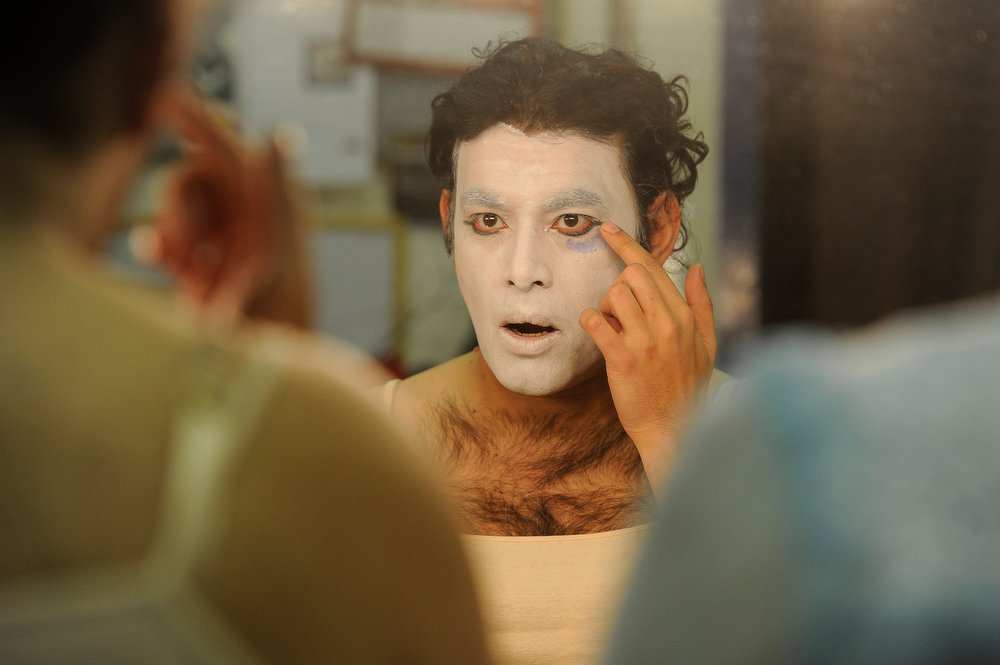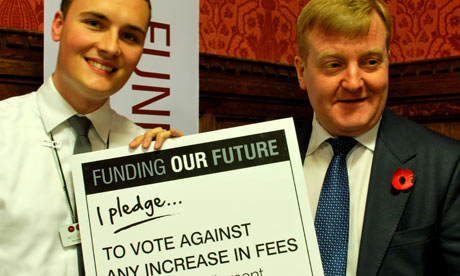Only a few weeks into 2017, and already we are seeing the general standing of the LGBTQ+ community threatened, as well as those groups that campaign for their rights.
The election of reality-show-star Donald Trump as the 45th President of the United States has generated an immediate impact, and a frightening image of the future. On his first day in office, Trump’s administration had already removed a page centred on LGBTQ+ rights, which also featured as a sort of “official” apology for decades of discrimination, from the main federal website connected to the White House.
Theresa May’s meeting with him, which Tim Farron has referred to as a “mark of shame” for the U.K., has done little to alleviate fears. Rather than denounce the misogynist, racist, homophobic language of his administration and the implementation of divisive executive orders, May praised Trump for his election victory and stressed the importance of upholding the “special relationship” between the U.S. and U.K.
This is, perhaps, a panicked search for allies in a post-Brexit context. The isolationism that both Trump’s America and “independent” Britain instructs can be expected to hurt already marginalised groups even further. It is under these cheery conditions that I talk to Alex Andreou about Brexit, privilege, and the future of LGBTQ+ rights.
Now a resident of South London, Andreou was born in Mykonos, Greece, and moved to England in 1990. The years since have rendered him something of a polymath: he undertook an undergraduate degree in law before joining the Office of Fair Trading, defending consumer rights. He then earned a postgraduate diploma in Economics, and ran competition investigations.
In 2007, Andreou retrained as an actor at The Poor School, enjoying his National Theatre debut in 2009. After beginning to write for the New Statesman in 2012 and the Guardian in 2013, Andreou cemented his career as an astute and versatile journalist. His rounded ambitions continue: he is currently Resident Artist at the Theatre Royal, Stratford East, and is about to publish his first book, about life and food, with Chatto and Windus.
I know from being an avid follower of Andreou’s work – he is famously and unreservedly vocal on twitter, commenting on everything from the current state of the Labour Party to the latest series of “The 100” – that he is particularly worried about the current political climate in both the U.S. and the U.K., and the way it will affect LGBTQ+ migrants both living, and, most specifically, hoping to seek asylum here.
Referenda separate people into camps, and it’s really difficult to negotiate afterwards
The word “divided” has become something of a buzzword both here and across the pond, and I asked him about how this is affecting the rights of the LGBTQ+ community. Referenda, he said, cause a rift that is most difficult to heal: “They sort of separate people into camps, and I think it’s really difficult to negotiate afterwards.” A central problem Andreou highlights is that “it leads people to confuse democracy with a very peculiar concept which is called democratic centralism, which is actually a Stalinist concept…there is a window to debate an issue, and if you lose, you then have to fall behind the majority, and never speak of it again.”
This leads to the erroneous idea that in order for laws to be valid they need only appease the majority of voters. He relates this back to the Equal Marriage Act, where Andreou claims, “there was this school of thought that said the majority don’t want this, therefore why would you do it.” So it is with Brexit.
This line of thinking suggests that because the majority voted to leave the EU, it does not follow that the 48% of the country that voted to remain should be heard. “As if equality somehow is sort of a construct that only the majority can grudgingly grant to the rest.”
Another, more unsettling issue that the referendum exposed is that these “camps” are no longer distinguishable as existing between the traditional binaries of “left” and “right”: David Cameron, then Prime Minister, and long-time member of the typically right-leaning Conservative party, argued that Britain would be safer and better off inside of the European Union. Jeremy Corbyn, leader of the Labour Party and vocally left wing, has been criticised for failing to push for a vote to remain.
This split, then, between “leavers” and “remainers”, progressives and regressives, occurs as far more disconcerting.
The Equal Marriage Act ‘served to legitimise the psuedo-liberal credentials of the government’
Andreou seems to agree: there are “large swathes,” he says, “of traditional labour voters who want economic socialism but who are deeply socially conservative,” and “large chucks of traditionally Tory voters who want economic liberalism but who are socially quite liberal.” This leads to a sort of “cognitive dissonance” around how to define people and their politics.
What does this mean for members of the LGBTQ+ community? A looming problem for Andreou lies with those whose economic theories are right leaning, but who are liberal when it comes to issues that surround marginalised groups.
Economics and social policy are distinct, but it is undeniable that economic policy has a social effect. The bringing in of the Equal Marriage Act in the UK under the Cameron-led Conservative Party, to Andreou, served “to legitimise the sort of pseudo-liberal credentials of a government that was, and is, simultaneously punishing the disabled, the homeless, the poor, women, every other minority they can lay their hands on.”
“I can’t knock the result,” he goes on to say, “Because it has given us a world with more, not less, equality. But I suspect that if it went even in a small way to helping a government that has been profoundly bad for minorities get re-elected, then whatever benefit a small group got, is cancelled out by the general detriment.”
What’s more, it allows for the display of white supremacy, and the way that Andreou believes it has appropriated part of the LGBTQ+ community by way of wealthy, white gay men. He comments on Ivan Massow, who ran as Tory candidate in the London mayoral elections, who famously stated that he found it harder to come out as a Tory than he did as coming out as a gay man, and whose economic policy would undoubtedly affect those already on the fringes of society even further.
“Someone like Ivan Massow who is a white, Anglo Saxon, millionaire business owner, saying something along the lines of, ‘gay men can stop fighting for equality now and can express their inner Tory’” is to Andreou “profoundly strange, because it shows a complete lack of understanding that the reason he was let into the club is not because he’s gay but because he’s a white, Christian and a millionaire.
The LGBTQ+ community is being dragged ‘into a sort of neo-puritanism, where…we put more pressure on people to conform rather than drag the rest of society to a more sexually liberal position’
“And had he been a black gay man, or a poor gay man, or a Muslim gay man, he wouldn’t be in the position he is in today. And so that to me has a whiff of pulling up the ladder after we got into the tree house and saying we’re in now, but no more.”
Andreou’s suspicion of the inclusion of some members of the LGBTQ+ community into the established elite also instructs his scepticism about the value of the Equal Marriage Act. He accepts that “in a general framework of equality, if straight people have the opportunity to get married, then so should gay people, clearly”.
However, he feels that in stressing the importance of traditionally accepted relationships, the LGBTQ+ community is being dragged “into a sort of neo-puritanism, where…we put more pressure on people to conform,” rather than “dragging the rest of society into a more sexually liberal position.”
Issues like these are of course complex, but Andreou stresses that we must stay alert: “civil rights are not monodirectional”. He issues an elegant warning in response to the turbulent events of recent months:
“Equality is a garden that needs constant tending because the weeds never stop growing, because people who feel they should be in power…never stop fighting to take us backwards”. We must, then, keep on gardening, keep on fighting.





